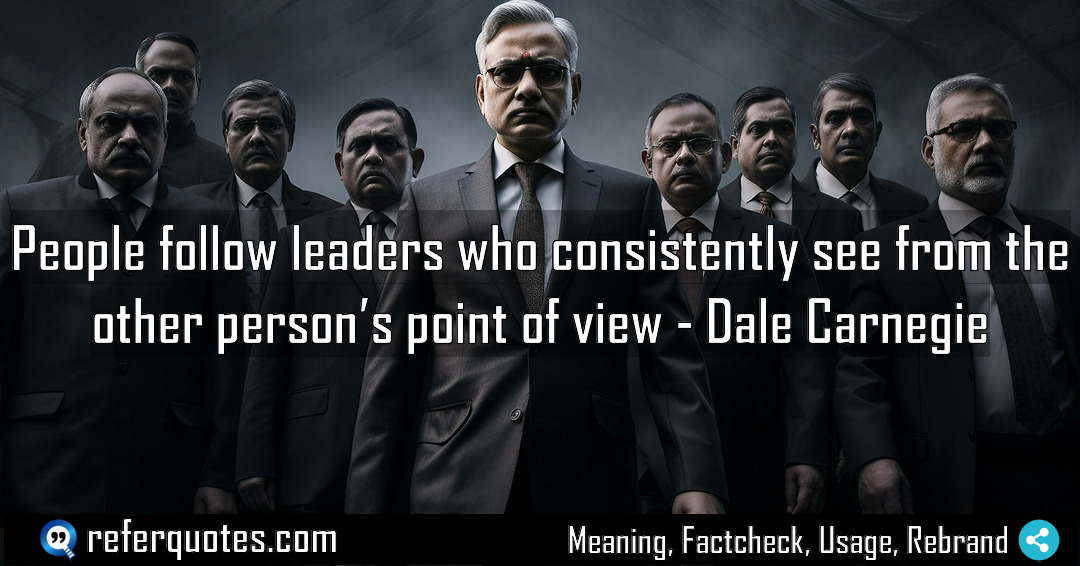You know, the idea that “People follow leaders who consistently see from the other person’s point of view” is one of those game-changers. It flips the script on what we think leadership is all about. It’s not about being the loudest or the most commanding. It’s about connection. And that connection starts with genuine understanding.
Share Image Quote:Table of Contents
Meaning
At its core, this means that true leadership isn’t about authority; it’s about empathy. It’s the ability to step into someone else’s shoes and genuinely understand their perspective, their motivations, and their challenges.
Explanation
Let me break this down a bit. I’ve seen this play out so many times. The leaders people actually *want* to follow, the ones who inspire real loyalty, are the ones who make you feel *heard*. They don’t just issue commands from an ivory tower. They get in the trenches. They ask “What’s your take on this?” or “What’s blocking you?” And they actually listen to the answer. It’s a subtle shift from “I’m the boss” to “We’re a team.” And that shift? It’s everything. It builds trust at a fundamental level. When people feel understood, they feel valued. And when they feel valued, they’ll move mountains for you.
Quote Summary
| Context | Attributes |
|---|---|
| Original Language | English (3668) |
| Category | Wisdom (385) |
| Topics | empathy (143), perspective (23), trust (147) |
| Literary Style | plain (102) |
| Emotion / Mood | reflective (382) |
| Overall Quote Score | 63 (28) |
Origin & Factcheck
This wisdom comes straight from the folks at Dale Carnegie & Associates in their 1993 book, The Leader In You. It’s a direct extension of Carnegie’s legendary principle from How to Win Friends and Influence People—specifically, to “see things from the other person’s point of view.” It’s sometimes misattributed to Carnegie himself, but this particular phrasing is from the organization carrying his legacy forward.
Attribution Summary
| Context | Attributes |
|---|---|
| Author | Dale Carnegie (408) |
| Source Type | Book (4032) |
| Source/Book Name | The Leader In You (86) |
| Origin Timeperiod | Contemporary (1615) |
| Original Language | English (3668) |
| Authenticity | Verified (4032) |
Author Bio
Dale Carnegie(1888), an American writer received worldwide recognition for his influential books on relationship, leadership, and public speaking. His books and courses focus on human relations, and self confidence as the foundation for success. Among his timeless classics, the Dale Carnegie book list includes How to Win Friends and Influence People is the most influential which inspires millions even today for professional growth.
Official Website |Facebook | X | Instagram | YouTube |
Where is this quotation located?
| Quotation | People follow leaders who consistently see from the other person’s point of view |
| Book Details | Publication Year/Date: 1993 (first edition) ISBN/Unique Identifier: 9781501181962 (Gallery Books 2017 reprint); also 9780671798093 (early Pocket Books hardcover) Last edition. Number of pages: Common reprints ~256 pages (varies by printing). |
| Where is it? | Chapter 5 Seeing Things from the Other Person’s Point of View, Unverified – Edition 2017, page range ~55–68 |
